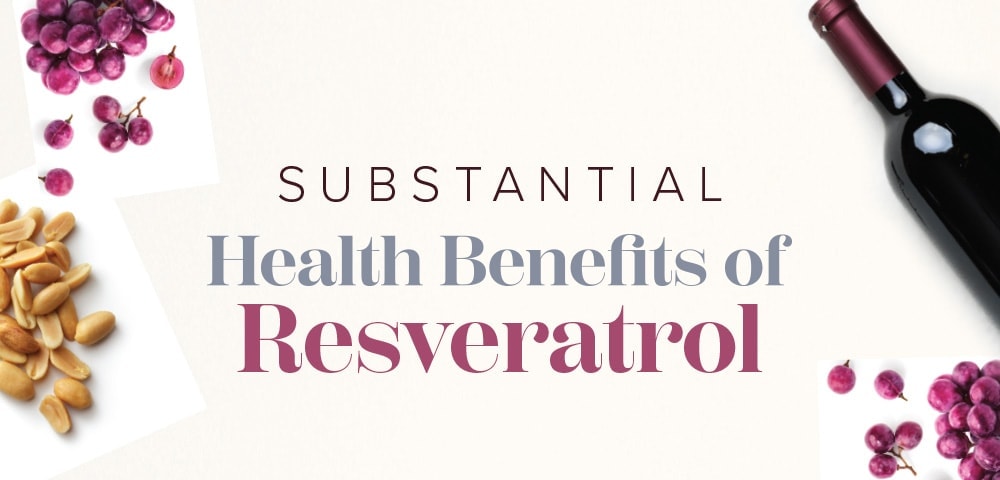
Resveratrol supports healthy aging by supporting mitochondrial health,
the energy-producing units within our cells.
Do you remember the French paradox? First described in the 1980s, this was the supposed contradiction between the rich, creamy French diet and France’s famously low rates of cardiovascular disease. Although the link between saturated fat and heart disease has since been debunked, there are notably heart-healthy aspects of the French diet. Scientists eventually homed in on red wine, identifying resveratrol as an essential cardioprotective nutrient. Forty-plus years later, resveratrol lies at the heart of leading-edge longevity research. If you have been following emerging anti-aging science and are ready to add some resveratrol to your daily routine, here’s what you need to know about its health and longevity benefits.
Resveratrol 101

First, let’s talk about what resveratrol is and its sources. Resveratrol is a polyphenol antioxidant found in the skin of red grapes and other plants such as peanuts, berries, and Japanese knotweed. We know it for its potent antioxidant properties, which help protect cells against oxidative damage caused by free radicals. Cell damage plays a role in aging, so preventing it is key to maintaining optimal health as we age.
The benefits of resveratrol go beyond just protecting against cellular damage, and research has shown that it can also support cardiovascular health, cognitive function, and longevity. In fact, some studies have suggested that resveratrol may increase lifespan by activating specific pathways in the body that promote healthy aging.
Mitochondrial health is vital for well-being and longevity, and research shows that resveratrol may help protect and support the health of these essential structures.
Additional research suggests that resveratrol may help extend lifespan by activating a protein called sirtuin. Sirtuins play a role in the aging process and regulate cellular metabolism and stress response. Activating sirtuins with resveratrol may help slow the aging process and promote healthy aging.
Resveratrol supplements
You don’t have to drink red wine to reap the benefits of resveratrol. It can also be found in supplements, which offer a convenient way to incorporate this powerful antioxidant into your daily routine. And if you’re concerned about the possible digestive effects of resveratrol from Japanese knotweed, fear not! High-quality supplements use purified knotweed to remove 99% of the emodin, a natural substance that can act as a laxative in some people. When shopping for supplements, make sure the label states the amount of trans-resveratrol, which is the active form of the nutrient.
So, is resveratrol the key to living a longer, healthier life? While more research is needed to fully understand the extent of its potential health benefits, the current evidence is certainly promising.












